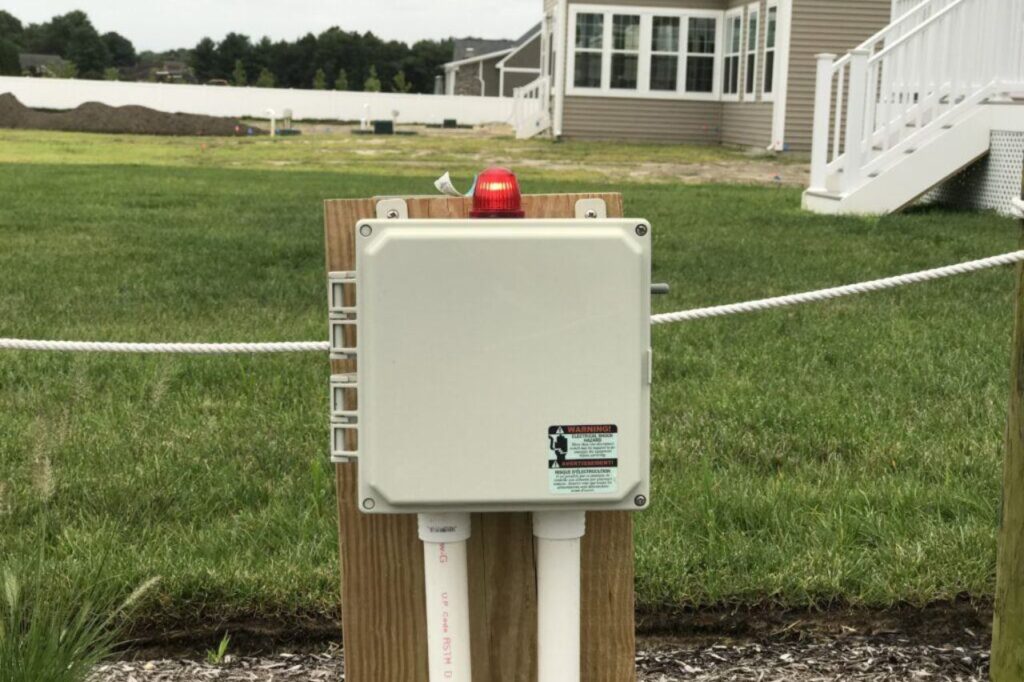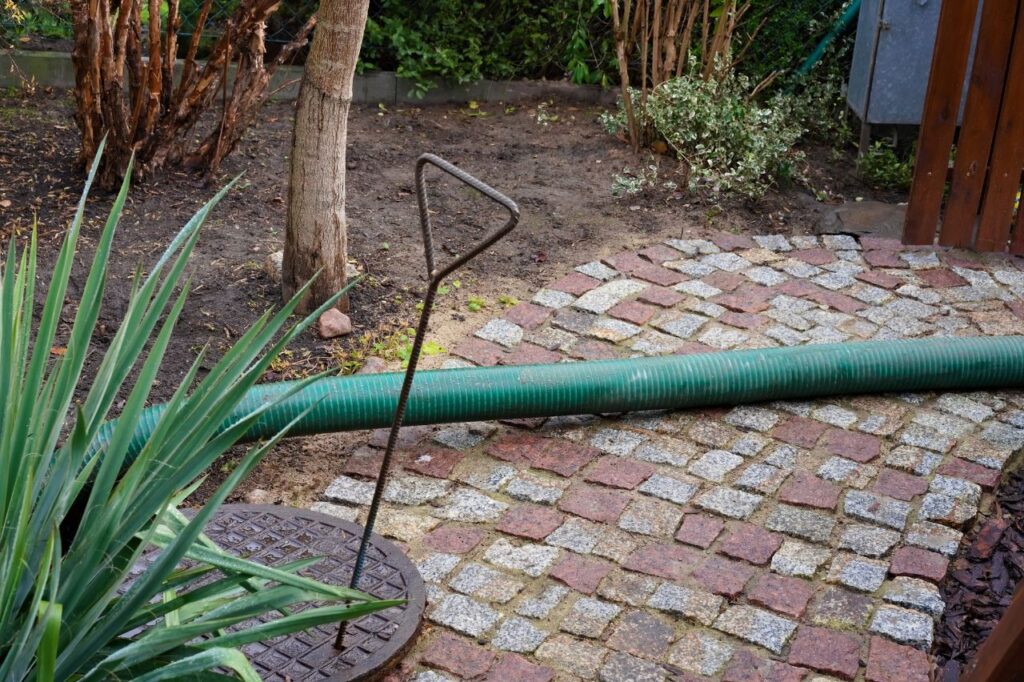Septic Tank Overflow
Septic tank overflow can be a major problem and cause expensive water damage, but it’s possible to prevent it with regular maintenance. In this article, we’ll discuss the causes of septic tank overflows and how to take steps to avoid it in the future.
Too Much Wastewater Entering the System
One of the most common causes of septic tank overflow is an influx of too much wastewater entering the system. While a septic tank can handle workloads typically associated with a standard household, it can be overwhelmed by too many large loads such as laundry or dishes being run through one cycle. Additionally, plumbing problems such as broken pipes or leaking toilets can also send more water than usual into a septic tank. It’s important to quickly identify and fix any plumbing issues that arise to prevent an overflow situation.
Insufficient Tank Size for the Number of Occupants in a Home or Commercial Building
Another common cause of septic tank overflow is the tank simply being too small for the number of people using it. Septic tanks should be sized to accommodate enough wastewater, so they don’t become overwhelmed. If a home or building has more occupants than the original tank design could handle, an overflow situation may occur. Furthermore, although regular maintenance can help keep a septic system running optimally, eventually this system will need to be replaced or upgraded. Regular maintenance and check-ups performed by a septic professional can help prevent an overflow situation due to an undersized system by catching any issues early on.
Faulty Valves, Pumps and Other Components of the Septic System
Faulty valves, pumps and other components of the septic system can also be a cause of overflow. These parts will wear down over time due to use and age. Without proper maintenance, these potential problems are often overlooked until it’s too late. It is important to note that many reputable septic service companies recommend yearly inspections to help maintain compliance with local codes, regulations, and ordinances. By having your system inspected regularly, you can minimize the risk of an overflow situation caused by faulty components of the system.
Exposed Pipework and/or Inadequate Ground Slope Near the Septic Tank, Causing Sewage to Backflow into the Property and Leak Out of Overflow Points Due to Gravity Pressure
Many homes have inadequate ground slope near their septic tank, which can cause sewage to backflow into the property or an overflow point. This overflow is further compounded by any exposed pipework around the area. Sadly, this can be difficult for homeowners to identify until it’s too late but there are preventative measures that can be taken such as ensuring acceptable ground level slopes and protecting exposed pipework from damage.

Warning Signs of a Septic Tank Overflow
Septic tank overflow is a serious problem that can occur if the system becomes damaged or clogged. It is important to be aware of the warning signs of a potential septic tank overflow, and to take steps to prevent it from happening.
Toilets Gurgle
If your toilets gurgle or begin to back up, this is a sign that something may be wrong with your septic system. Septic tank overflow can occur if the pipes become restricted due to clogs, tree roots, or other blockage-causing material. Take note of any changes in your toilet’s behavior and contact a professional to inspect your septic tank as soon as possible.
Sinks Become Slow to Drain
Another sign of a potential septic tank overflow is when your sinks become slow to drain. This could mean that the pipes are blocked with debris, or there could be an issue with the septic tank itself. If the water remains stagnant in your sink or bathtub for extended periods of time, this is a warning sign that something may be wrong. Consult with a professional as soon as possible to investigate the problem and prevent an overflow from occurring.
Sewage Smell from Drains
A sewage smell coming from your sinks, toilets, and drains can indicate that a septic tank overflow is imminent. The smell indicates the presence of methane gas, which is released as waste breaks down in the tank. When this waste accumulates to high levels in the tank, it puts pressure on the walls resulting in an overflow. Be sure to investigate any strange odors coming from your plumbing fixtures immediately and take remedial action if necessary.
Excessively Moist Patches in the Yard
Excessively moist patches in the yard, especially close to the septic tank may be one of the signs that the septic tank is overflowing. If you see patches of grass in the yard that are suddenly more vibrant and lush than areas further away, this could be an indication that your septic tank is overflowing. In which case, you should engage a professional plumber to inspect your system and take remedial action as needed.
Abundance of Flies or Other Vermin
An abundance of flies can also be a sign of septic tank overflow. If there are an unusually high number of flies you see buzzing or crawling in the vicinity of your septic tank, it’s possible that wastewater is leaking and attracting them. You should also be on the lookout for other vermin, such as rats or other rodents, which may also be indicative of a septic tank overflow. If you see such pests, contact a professional plumber immediately.

Septic Tank Overflow Prevention
Septic tank overflow can be hazardous to your health and property, so it’s important to learn how to prevent it from happening. With this guide, you will understand the correct septic tank maintenance, early warning signs of an impending overflow and steps to take in the event of a septic overflow emergency.
Check Septic Tank Capacity and Maintenance Schedule
Checking the capacity and maintenance schedule of your septic tank is important as it helps to maintain proper functioning of the septic system. First, make sure that your tank is large enough for your home or office’s needs. Then, inspect the tank regularly for any signs of damage or wear-and-tear and get it serviced on schedule to ensure that everything is operating properly.
Watch for Warning Signs of an Overflow
Pay attention to any signs that your septic tank might be at risk of overflowing. These can range from gurgling drains, slow draining sinks or tubs, and foul-smelling odors coming from your sewage system. If you recognize any of these indicators, take action immediately to assess the problem and prevent overflows from occurring.
Choose the Right Products to Avoid Clogging Your System
When it comes to septic tank overflow prevention, the products you use can make all the difference. Avoid using flushable wipes, paper towels and facial tissues as these items will quickly clog your drains and pipes, causing an overflow. Also be sure to never put grease down the drain as it will quickly solidify and block off portions of your system. Instead, opt for natural products that won’t disrupt your system. Use a drain cleaner or enzyme treatment every few months to reduce and prevent overflow risk!
Install a Septic Tank Alarm and Routinely Test It
Installing a septic tank alarm can be one of the best ways to prevent overflows early. An alarm will sound when the water level in your tank rises too high, giving you time to empty it and prevent costly overflow cleaning bills. In order to ensure that your alarm is working correctly, it’s important to test it at least once every few months. Follow manufacturer instructions when performing routine tests and replace any faulty parts immediately.
Have Your System Inspected Regularly by a Professional Service Provider
Many septic tank overflows occur because of unanticipated blockages in the plumbing and pipes. To give yourself the best chance of preventing a costly overflow, it’s important to have your system inspected regularly—at least once a year—by a professional service provider. Have them check the drainpipe, connecting lines, pump chamber, controls, and other parts of the system to make sure they’re all working properly. If you find any damaged or broken components during your inspection, be sure to have them fixed promptly to avoid further issues.

